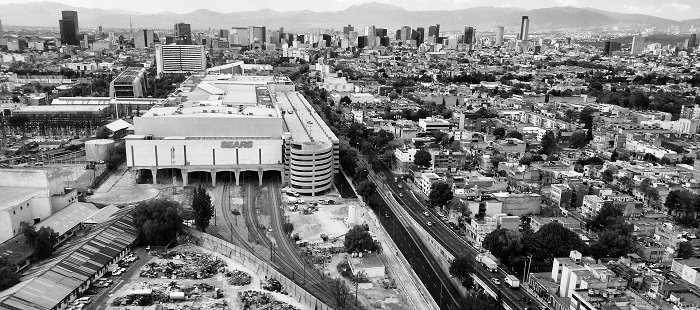
By Mariana Díaz-Ávila and Alfredo D. Cuarón
In this blog, Mariana Díaz-Ávila and Alfredo D. Cuarón remind us that COVID-19 is just one challenge that CSOs are facing. In Mexico, civil society is also contending with political pressures and violence against environmental and human rights activists, a situation replicated in many parts of the world.
Last Friday, August 28th, Mexico’s president, Andrés Manuel López Obrador, launched a stinging attack on the environmental, indigenous and human rights sector. He claimed that many CSOs (Civil Society Organizations) were being paid illegally by foreign foundations to oppose his controversial train project in the Yucatan Peninsula.
Our colleagues from Centro Mexicano de Derecho Ambiental (CEMDA; Mexican Centre for Environmental Rights) demanded that President López Obrador apologize, claiming he was “criminalizing” environmentalists. This is not the first time; he has been doing this since his administration began. “I have received information that all of these supposedly independent non-governmental, so-called civic groups are getting money, sometimes from abroad, to oppose the construction of the Maya Train,” the President said, accusing them of “disguising themselves for money as environmentalists, disguising themselves as human rights defenders for money as well, when in the end it is a struggle for political and economic power.” Now, on Monday, August 31st, the Minister of the Environment and Natural Resources, Víctor M. Toledo, left the charge in the middle of the storm, claiming health issues. Previously he had been fighting his own very complex battle full of intricate political alleys, some of them related to the Maya Train, and also to ban the use of some agrochemicals, such as glyphosate, among other issues. This clearly demonstrates that the environment and human rights are not a priority of López Obrador administration.
Mexico is a dangerous place for activists. During the López Obrador administration, which began on September 1st 2018, a total of 18 environment and human rights defenders – half of them indigenous – have been murdered; that is one environmentalist every 40 days. This is not a new problem, as activists confronting mining, oil, infrastructure and other projects, or working in areas with the presence of organized crime, have found challenging security conditions to work for decades. Many Latin American and Caribbean countries have signed a binding Regional Agreement on Access to Information, Public Participation and Access to Justice in Environmental Matters – The Escazú Agreement (March 2018) – to address these issues. Mexico has not ratified this agreement yet, and this is currently under discussion in the Senate.
The country is better today, and in great measure it is because of what CSOs have done.
Meanwhile, for months COVID-19 has forced many providers of international funding to redirect their financial support in order to address COVID-19 impacts. The perfect negative storm intensifies and leaves CSOs more vulnerable than ever. This adds to the already devastating financial crisis dating from the beginning of López Obrador administration, when he suspended every governmental support that has been given over previous decades through very solid and organized programmes, claiming that the CSO sector was full of corrupt practices and illicit funding.
Challenges are many and everywhere. In response to COVID-19, Mexican CSOs are adapting to the new pandemic conditions, have moved to work on-line, and are taking extreme precautionary practices with fieldwork to avoid spreading the virus and keeping communities safe.
In the end, COVID-19 is not the most dangerous threat that humanity faces today. Global warming, climate change, depredation of natural resources, biodiversity loss, and inequality are still in the inkpot waiting to be addressed in an urgent, radical and overwhelming manner. Mexican CSOs are facing up to these challenges.
Mexican CSOs are resourceful, courageous, committed and resilient, and build on successful work of several decades. They are acknowledged and appreciated by society at large. Today, under the present health and security circumstances, and complete government hostility towards them, the challenges sometimes seem greater than ever. But CSOs have overcome huge challenges before. Mexico’s President and his close team of counsellors should understand that CSOs are a pillar support that addresses fundamental issues, supplements financial resources, and oversees, complements, enriches and strengthens governmental actions. CSOs are paramount in modern democracies. They have had leading roles in building modern Mexico. The country is better today, and in great measure it is because of what CSOs have done.
Mariana Díaz-Ávila and Alfredo D. Cuarón, SACBÉ – Servicios Ambientales, Conservación Biológica y Educación (Environmental Services, Biological Conservation and Education)
For more information on the current situuation or to take action please refer to the CIVICUS civic space monitor for Mexico and the website of CEMDA.